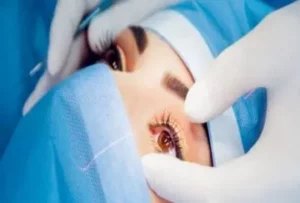Do you have a pair of glasses that you only wear for special occasions? Are you tired of having to keep track of them and constantly worrying about losing them or breaking them? If so, then you may have an interest in specs removal surgery. This is a procedure that removes the eyeglasses prescription from your eyes, allowing you to see clearly without corrective lenses. In this blog post, we will discuss the benefits of specs removal surgery and what you need to know before undergoing the procedure.
Contents

Specs removal surgery is also known as photorefractive keratectomy (PRK) or laser-assisted subepithelial keratectomy (LASEK).
If you are considering specs removal surgery, then it is important to consult with an experienced ophthalmologist who can evaluate your eyes and determine if you are a good candidate for the procedure. They will also be able to answer any questions that you may have about the surgery.
As mentioned above, there are two main types of specs removal surgery: PRK and LASEK.
Both these are types of laser eye surgery and both have a very high success rate.
There are many benefits to having specs removal surgery.
If you are considering specs removal surgery, then it is important to consult with an experienced ophthalmologist who can evaluate your eyes and further discuss the benefits of the procedure.
If you meet all of the above criteria, then you may be a good candidate for specs removal surgery. However, the only way to know for sure is to consult with an experienced ophthalmologist.
Before undergoing specs removal surgery, you will need to have a comprehensive eye exam. This will help to ensure that you are a good candidate for the surgery. The ophthalmologist will also be able to answer any questions that you may have about the procedure.
During the surgery, the doctor will use a laser to permanently change the shape of your cornea. This will allow light to enter your eye in the correct way so that you can see clearly. The surgery usually happens on an outpatient basis, which means that you will be able to go home the same day.
After the surgery, you will need to rest your eyes for a few days. You may also need to use eye drops and wear sunglasses when you are outside. It is important to follow all of the instructions given to you by your doctor. The recovery process can take a few weeks, but most people see a significant improvement in their vision within the first few days.
There are also some things that you should keep in mind before undergoing specs removal surgery.
As with any surgery, there are risks and potential complications associated with specs removal surgery. These include:
Most of these risks and complications are rare and is easily treatable. However, it is important to be aware of them before undergoing the surgery. However, in some instances, these risks can translate into more serious problems such as:
These are very rare complications, but they can occur.
This is why it is so important to consult with an experienced ophthalmologist before undergoing the surgery. They will be able to evaluate your eyes and discuss the potential risks and complications associated with the procedure.
If you do not wish to undergo surgery for specs removal, there are other options available. These include:
Each person is different and will need to decide what is best for them. If you are not sure whether or not specs removal surgery is right for you, be sure to consult with an experienced ophthalmologist. They will be able to answer any questions that you may have and help you make the best decision for your needs.
Conclusively, specs removal surgery is a safe and effective way to reduce your dependence on glasses or contact lenses. However, it is important to have realistic expectations about the results of the surgery and be aware of the potential risks and complications. If you are considering surgery, be sure to consult with an experienced ophthalmologist who can answer any questions that you may have.
EyeMantra offers the most advanced lasik options including PRK, Femto Lasik , SMILE surgery, Standard lasik and Contoura vision. If you have any questions on lasik surgery, lasik surgery cost and lasik procedure, call us at +91-9711116605 or email at eyemantra1@gmail.com.
When it comes to vision health, choosing the right eye care provider is one of…
विज़ियन आईसीएल क्या है - What Is Visian ICL In Hindi विज़ियन आईसीएल लेंस का…
लेजर सर्जरी क्या है - What Is Laser Surgery In Hindi आमतौर पर लोग आंखों…
Hyperopia, also known as farsightedness, is a condition that affects how well you can see…
आरएलई सर्जरी क्या है - What Is RLE Surgery In Hindi मुंबई में आरएलई सर्जरी…
If you are considering laser eye surgery, you may be wondering what to expect afterward.…